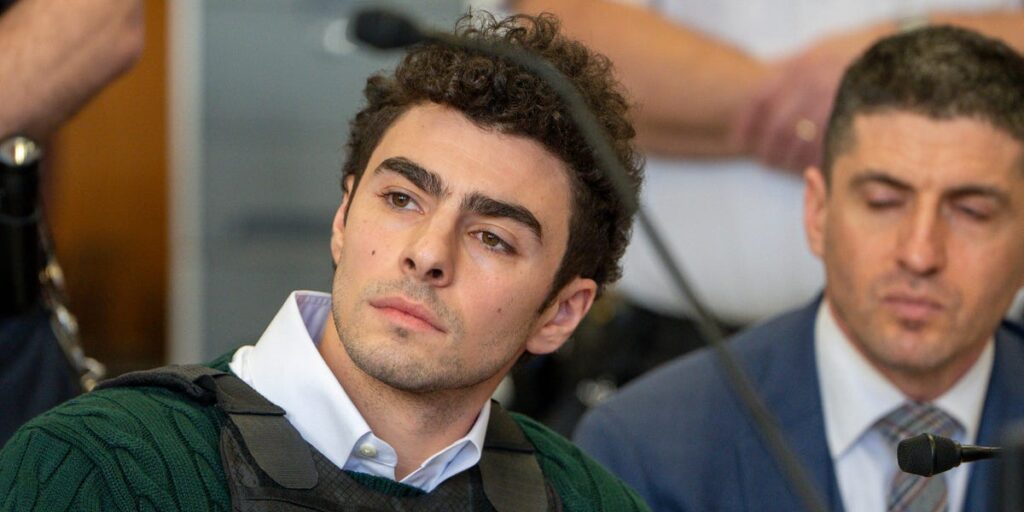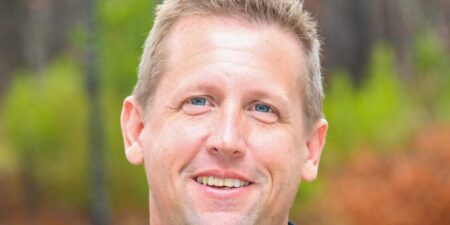Lawyers for the accused United Healthcare CEO killer, Luigi Mangione, are up in arms over what they say were “secret” communications between his New York prosecutors and Aetna, his former health insurer.
They say prosecutors sent Aetna an “unlawful,” back-channel subpoena seeking his confidential insurance account number and the time period for his coverage — and that in response, Aetna mistakenly sent prosecutors Mangione’s entire, 120-page insurance record.
This “trove of protected medical information” includes “different diagnoses as well as specific medical complaints made by Mr. Mangione,” his lawyers complained in a court filing Thursday night.
New York prosecutors should never have had access to these private records, his lawyers contend. And they should never have looked at them once receiving them, they also argue.
Aetna emailed the records to the Manhattan District Attorney’s Office on June 12, in four files, with a cover letter advising “confidential.” Each file was separately labeled “in large-type bold letters ‘Request for Protected Health Information,” the lawyers wrote.
“It would be impossible for anyone to view a single page of these records and not immediately see that they were private, confidential medical records within the scope of HIPAA,” the federal Health Insurance Portability and Accountability Act, the lawyers wrote.
The sheer volume of Aetna’s response should have alerted prosecutors that “the unlawful subpoena they served on Aetna resulted in far more material than they requested,” the lawyers wrote.
But instead of immediately sending the materials to the judge and the defense — where they should have been directly sent, as required by law — the DA’s office says it downloaded them into an internal “discovery file,” the lawyers wrote.
The lawyers say prosecutors “sat on this information” for 12 days, until June 24, when they sent the judge and defense team an email forwarding the four files. Prosecutors have told Mangione’s lawyers that in the interim, they had reviewed the records, but not “in their entirety,” according to the defense filing.
The defense filing, signed by defense lawyers Karen Friedman Agnifilo, Marc Agnifilo, and Jacob Kaplan, asks New York Supreme Court Justice Gregory Carro to order prosecutors to turn over all of their communications with Aetna.
It also asks the judge to hold “a full evidentiary hearing,” with sworn testimony, to determine possible remedies, including the recusal of lead prosecutor Joel Seidemann, the suppression of evidence, and the dismissal of Mangione’s indictment.
The subpoena, issued directly to Aetna and signed by Seidemann, bypassed the judge and defense team and should never have requested even the limited, HIPAA-protected information of Mangione’s account number and period of coverage, his lawyers argue.
“If they’re seeking information that is privileged, like medical records, the DA can’t just subpoena that stuff directly,” veteran homicide public defender Sam Roberts told Business Insider on Friday.
Prosecutors must first file a motion or application to the judge and defense team, alerting them to the subpoena, and then wait for the judge to review the subpoenaed materials privately, said Roberts, a senior staff attorney on the homicide defense task force of the Legal Aid Society.
“It sounds like they jumped the gun here,” Roberts said. “They got this information without first giving notice to the defense, and they got the information directly from Aetna when they should have sent it to the court first without opening it.”
Mangione’s lawyers allege in their filing that the May 14 subpoena initially commanded Aetna to send someone to appear in court on May 23 with “the account number and period of time during which the following individual received coverage: Luigi Mangione.”
The subpoena was not made public or viewed by BI.
May 23 was “a completely made-up date,” on which no court proceeding was scheduled, Mangione’s lawyers wrote.
Along with the subpoena, Seidemann sent a cover letter with his phone number and email, advising that “in lieu of appearing personally with the requested documents,” Aetna could mail or deliver the records to the court, the lawyers wrote.
Prosecutors “were plainly lying to get the materials as soon as possible,” they wrote, in order to bring their case to trial first, before he could be tried by federal prosecutors.
In addition to the state-level case, which alleges murder as an act of terrorism, Mangione is facing related, death-penalty-eligible murder charges in federal court. Prosecutors in central Pennsylvania say they, too, will try him for forgery and firearm charges related to his arrest there on December 9, after a five-day national manhunt.
Mangione’s lawyers previously complained that in April, Manhattan prosecutors improperly listened to an 11-minute attorney-client phone call, something the DA’s office has denied.
Both state and federal jurisdictions are vying to be first to put Mangione on trial.
Had Mangione’s lawyers not been bypassed, they would have objected to the Aetna subpoena, including on the grounds that “the information sought is not relevant,” they wrote.
A spokesperson for the DA’s office told BI on Friday that they will respond to the defense allegations in court papers.
“Aetna received a subpoena for certain medical records, and we provided them appropriately,” said Phil Blando, executive director for communications for Aetna’s parent company, CVS Health.
Asked if the district attorney subpoena requested details beyond Mangione’s account number and coverage period, Blando told BI in an email, “You have our statement.”
Mangione, a 27-year-old software developer, remains in a federal jail in Brooklyn in the December 4 murder of Thompson.
The 50-year-old father of two from Minnesota was shot in the back at close range outside a Midtown hotel where he was about to address the UnitedHealthcare shareholders meeting.
Mangione is linked to the killing by his so-called “manifesto” and by DNA, ballistics, video, and fingerprint evidence, according to state and federal prosecutors.
He is next due in state court on September 16, and in federal court on December 5; both courts are in Manhattan.
Read the full article here
















